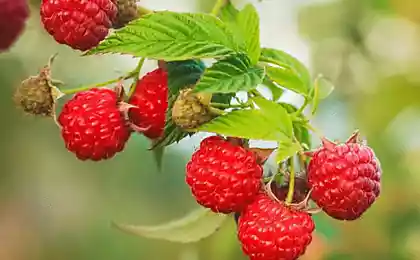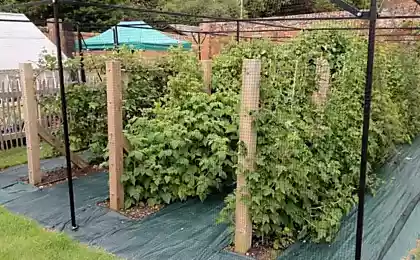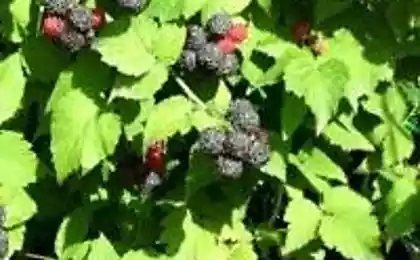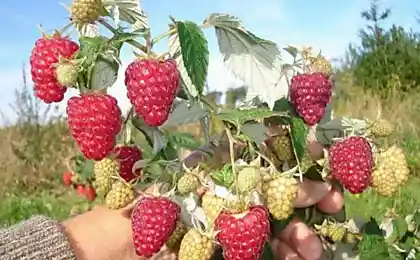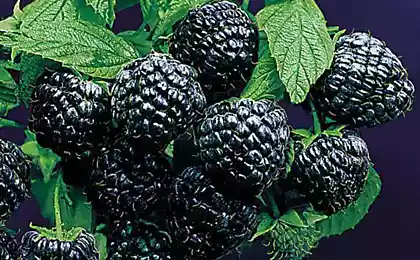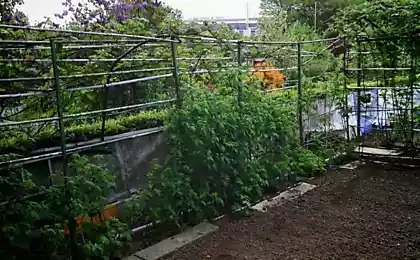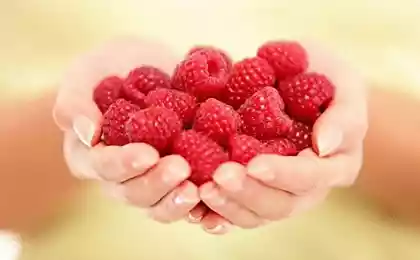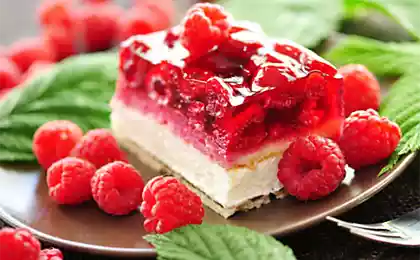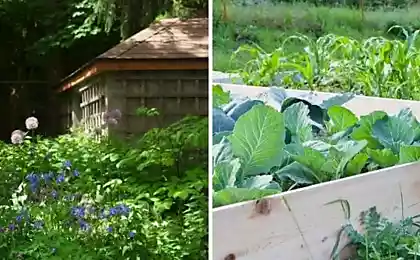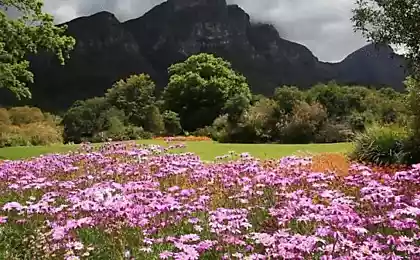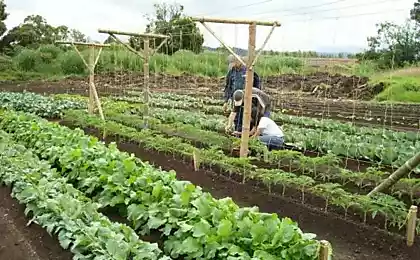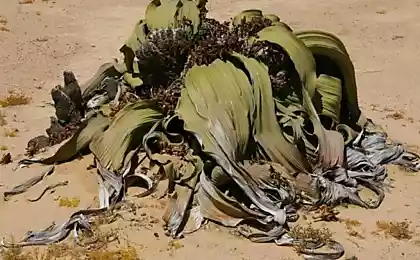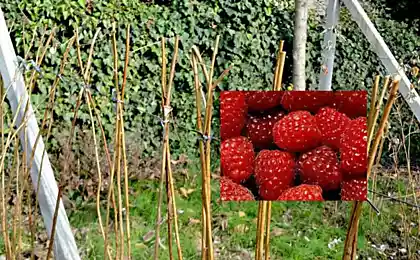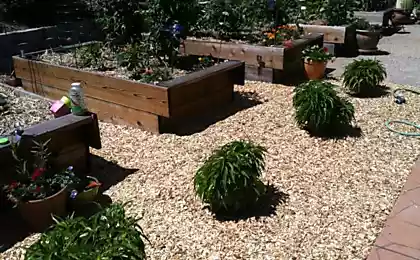187
Is it necessary to cut down raspberries, if all berries are eaten?
Raspberry is a traditional inhabitant of our gardens. This berry is not difficult to grow, and the harvest is stable, tasty and very useful. However, at the end of the summer, the bushes will have to take a little time so that they do not disappear. We're with the editors now. "Site" We will tell you in detail what should be raspberry care.

The mistake of many gardeners is that they postpone pruning raspberries until the onset of cold weather. Of course, in the midst of the summer season there is always not enough time. But bush care should start. shortly after harvest. The fact is that the bushes spend a lot of effort preparing for winter. During this period, feeding extra shoots is absolutely useless.
The main and most difficult thing about caring for raspberries is removal of old shoots and excess young. Do not postpone this procedure for autumn, and especially for next spring. Then you can skip the sick shoots and cut out healthy ones instead.
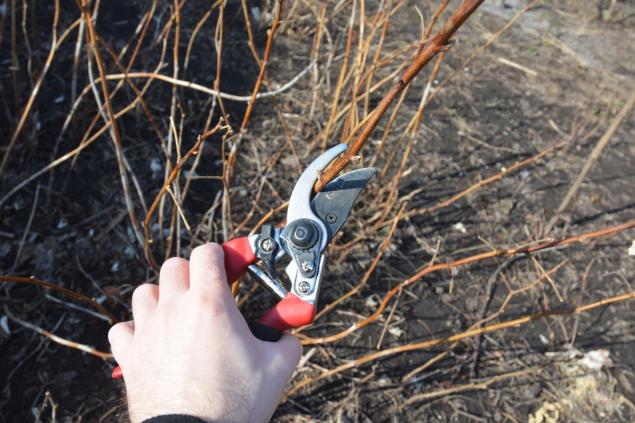
The thing is, at the end of summer, it's much easier to detect signs of illness. purple. These spots are clearly visible on the green bushes. And in September, absolutely all shoots will be brown, woody. Not only to find patients, but also to distinguish the old from the new will be problematic.
Many, having postponed raspberry pruning for autumn, focus on the cracked bark and the fragility of old shoots. But it's easy to make a mistake. It turns out that the old will overwinter, and the new will be removed. In the spring, you will have to cut again, focusing on the kidneys - they will not bloom on last year's ones. Why do you have to face such difficulties when you can? remove all unnecessary and sick in timeSo long as you can see it?

The stems and leaves of raspberries are home to many different insects: bedbugs, spiders, aphids, ants, spider mites, weevil beetles. No leaves on old shoots. They are covered with spots, quickly dry out.. Insects suck the juices out of them, leak the leaves. Their old house (fruit-bearing shoots) shrinks, but young shoots grow up. All the pests move on to them.
536973
Summer pruning and removal of old stems is also the prevention of pests and diseases. But, of course, all pests and all fungi pruning can not be removed, because some could already have time to settle on new stems. Therefore, after removing the old shoots, the raspberry stands treat with drugs from insects, and then from diseases.
At the end of summer and autumn, raspberries no longer grow. They begin to mature young shoots that are preparing for winter. In addition, the flower buds of the next year are laid and mature. The above-ground part of the growth stops, but The roots begin to renew and grow..

At this time You can not put under the raspberries strong organic (fresh manure, nettle infusion, litter) and nitrogen fertilizer. This will lead to growth and fat shoots. Because of this, they will not have time to stop and freeze in winter.
In late summer, the ground around raspberry bushes can be powdered wood-ash and water. You can also mulch with old humus or compost. It's a long-lasting organic. She'll also be working in the spring.
Mineral fertilizers, phosphorus-potassium will also benefit. We recommend using potassium monophosphate. It dissolves well, besides it contains both phosphorus and potassium. In 10 liters of water, dilute 1 tablespoon of fertilizer and pour under each adult bush in a bucket. In addition, if the earth is dry, then you can water the bushes with clean water. Then the fertilisers will reach the roots and benefit.

We also recommend that you read the basic rules for growing raspberries. This information will be useful to every beginner gardener.
If you provide raspberry bushes with careful care at the end of summer, then next year they will surely please with a plentiful and useful harvest. Good luck!

The mistake of many gardeners is that they postpone pruning raspberries until the onset of cold weather. Of course, in the midst of the summer season there is always not enough time. But bush care should start. shortly after harvest. The fact is that the bushes spend a lot of effort preparing for winter. During this period, feeding extra shoots is absolutely useless.
The main and most difficult thing about caring for raspberries is removal of old shoots and excess young. Do not postpone this procedure for autumn, and especially for next spring. Then you can skip the sick shoots and cut out healthy ones instead.

The thing is, at the end of summer, it's much easier to detect signs of illness. purple. These spots are clearly visible on the green bushes. And in September, absolutely all shoots will be brown, woody. Not only to find patients, but also to distinguish the old from the new will be problematic.
Many, having postponed raspberry pruning for autumn, focus on the cracked bark and the fragility of old shoots. But it's easy to make a mistake. It turns out that the old will overwinter, and the new will be removed. In the spring, you will have to cut again, focusing on the kidneys - they will not bloom on last year's ones. Why do you have to face such difficulties when you can? remove all unnecessary and sick in timeSo long as you can see it?

The stems and leaves of raspberries are home to many different insects: bedbugs, spiders, aphids, ants, spider mites, weevil beetles. No leaves on old shoots. They are covered with spots, quickly dry out.. Insects suck the juices out of them, leak the leaves. Their old house (fruit-bearing shoots) shrinks, but young shoots grow up. All the pests move on to them.
536973
Summer pruning and removal of old stems is also the prevention of pests and diseases. But, of course, all pests and all fungi pruning can not be removed, because some could already have time to settle on new stems. Therefore, after removing the old shoots, the raspberry stands treat with drugs from insects, and then from diseases.
At the end of summer and autumn, raspberries no longer grow. They begin to mature young shoots that are preparing for winter. In addition, the flower buds of the next year are laid and mature. The above-ground part of the growth stops, but The roots begin to renew and grow..

At this time You can not put under the raspberries strong organic (fresh manure, nettle infusion, litter) and nitrogen fertilizer. This will lead to growth and fat shoots. Because of this, they will not have time to stop and freeze in winter.
In late summer, the ground around raspberry bushes can be powdered wood-ash and water. You can also mulch with old humus or compost. It's a long-lasting organic. She'll also be working in the spring.
Mineral fertilizers, phosphorus-potassium will also benefit. We recommend using potassium monophosphate. It dissolves well, besides it contains both phosphorus and potassium. In 10 liters of water, dilute 1 tablespoon of fertilizer and pour under each adult bush in a bucket. In addition, if the earth is dry, then you can water the bushes with clean water. Then the fertilisers will reach the roots and benefit.

We also recommend that you read the basic rules for growing raspberries. This information will be useful to every beginner gardener.
If you provide raspberry bushes with careful care at the end of summer, then next year they will surely please with a plentiful and useful harvest. Good luck!
